There are two things I can be absolutely certain of with WordPress: 1) I can make virtually any type of website with it. 2) I’ll always have to suffer with clunky payment processing plugins. I’ve tried them all. Sometimes they require to mess with complicated coding elements. Other times these payment plugins lack essential features, like forms, subscriptions, or donations.
I won’t lie. When I was asked to review the WP Full Pay plugin, I was quite skeptical. I thought, “of course it would give me the same old issues I’d experienced with other WordPress payment plugins: randomly declined transactions, gateway errors, processing delays, and plugin conflicts.” Luckily, my testing of WP Full Pay went a different way. Follow along with my review to see what’s this plugin really made of:
⚖️ DISCLAIMER
The WP Full Pay plugin has been acquired and is now being maintained by the same team that’s behind Themeisle.
WP Full Pay at a glance
WP Full Pay is a Stripe-focused payment solution for WordPress. The premise behind the plugin is to give you a way to accept payments on a website within minutes – without using any code or having to worry about the usual fussiness that comes with WordPress payment processing.
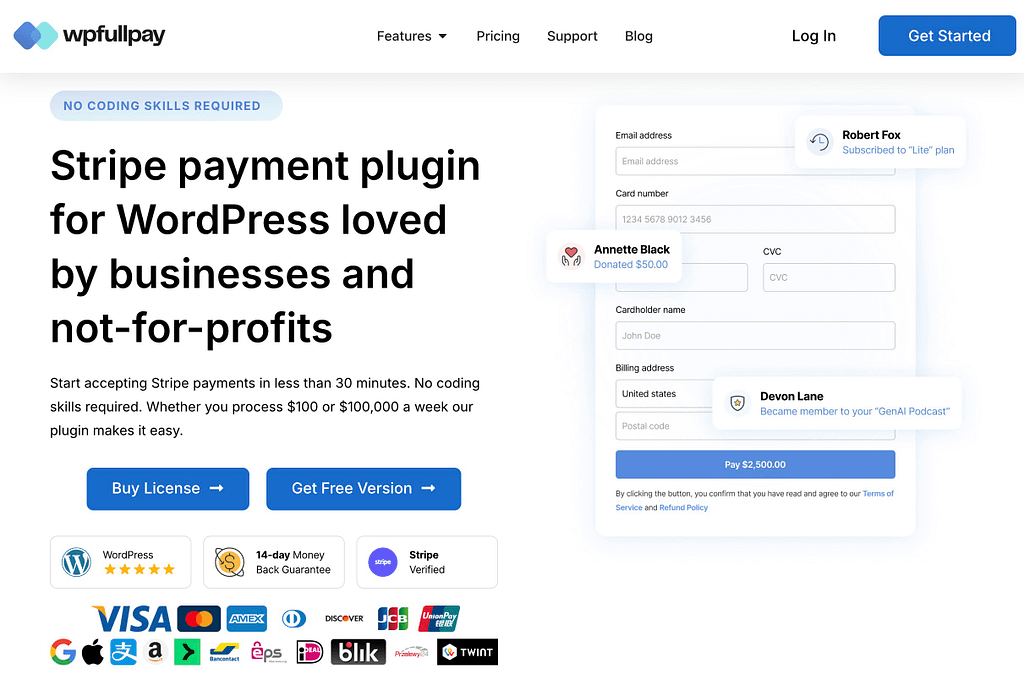

There are also some nice features in WP Full Pay that other WordPress payment plugins lack. These are things like donations, subscriptions, and code-less payment forms. WP Full Pay is like a combination of WooCommerce, Gravity Forms, and one of the many donation and subscription plugins available.
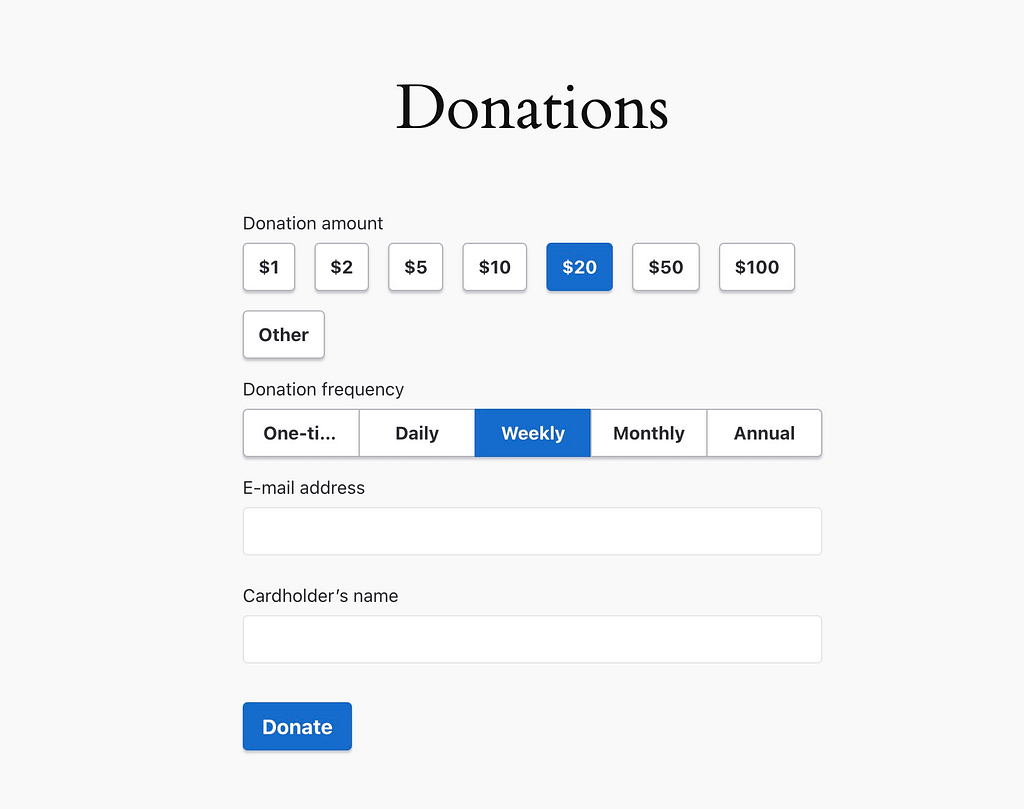

My favorite features from WP Full Pay
There’s no denying it. Website owners are flocking away from WordPress to embrace simpler payment processing solutions, like Square and Shopify Payments, and even some of the newer PayPal tools. I remember the last time I tried to sell eBooks and accept donations through WooCommerce. I spent half the time acting as customer support because confirmation emails were never sent out or customers received errors after purchasing.
That’s why we need a truly streamlined, smooth, and simple payment plugin for WordPress. I should be able to link my Stripe account within seconds, then insert a visually appealing form, Buy button, or subscription processing area with the click of a button. After testing out WP Full Pay, I’m confident in saying that it checks all those boxes, particularly when looking at my favorite features.
Stripe integration
The Stripe integration for WP Full Pay goes deeper than a simple connection to payment processing. You can also configure webhooks for custom notifications, like if you wanted to find out when your organization reached a donation goal.
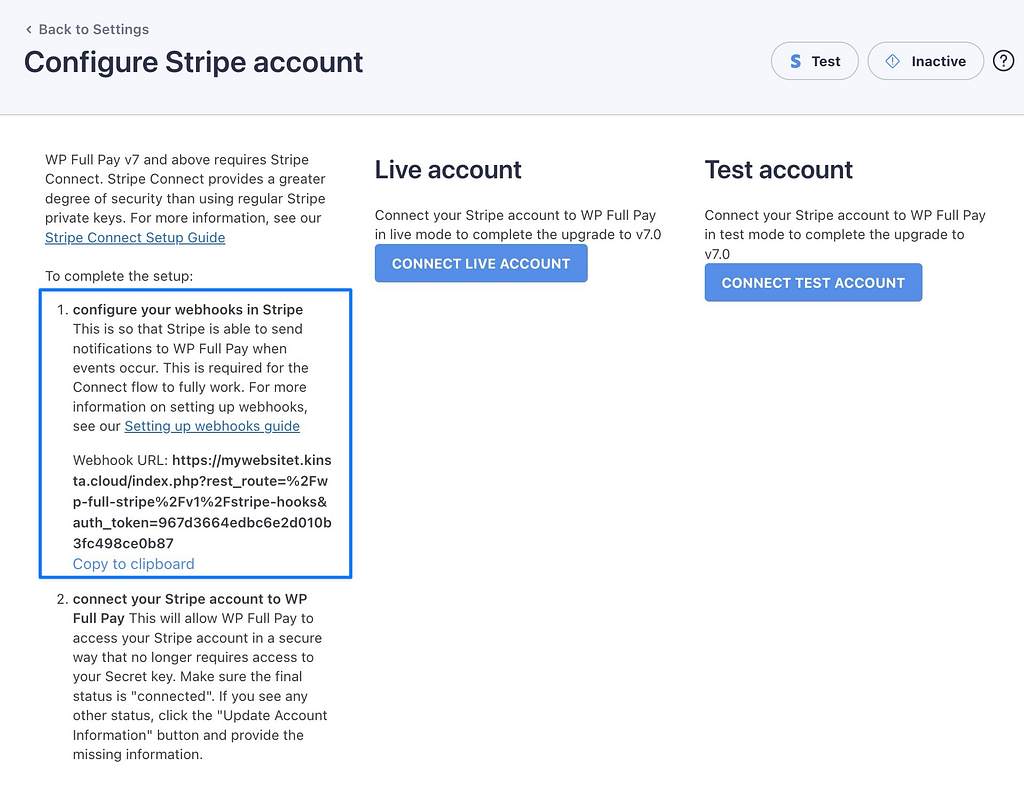

Another strong point is how WP Full Pay pulls in some of the coveted Stripe features, like the possibility to run a test account for mock transactions or connect a live account that sends money directly to a bank account.
One-time payment processing
While fiddling around with the WP Full Pay features, I noticed how useful the plugin would be for selling software, tickets, physical products, and even for settling invoices. This is where the one-time payment feature comes into play.
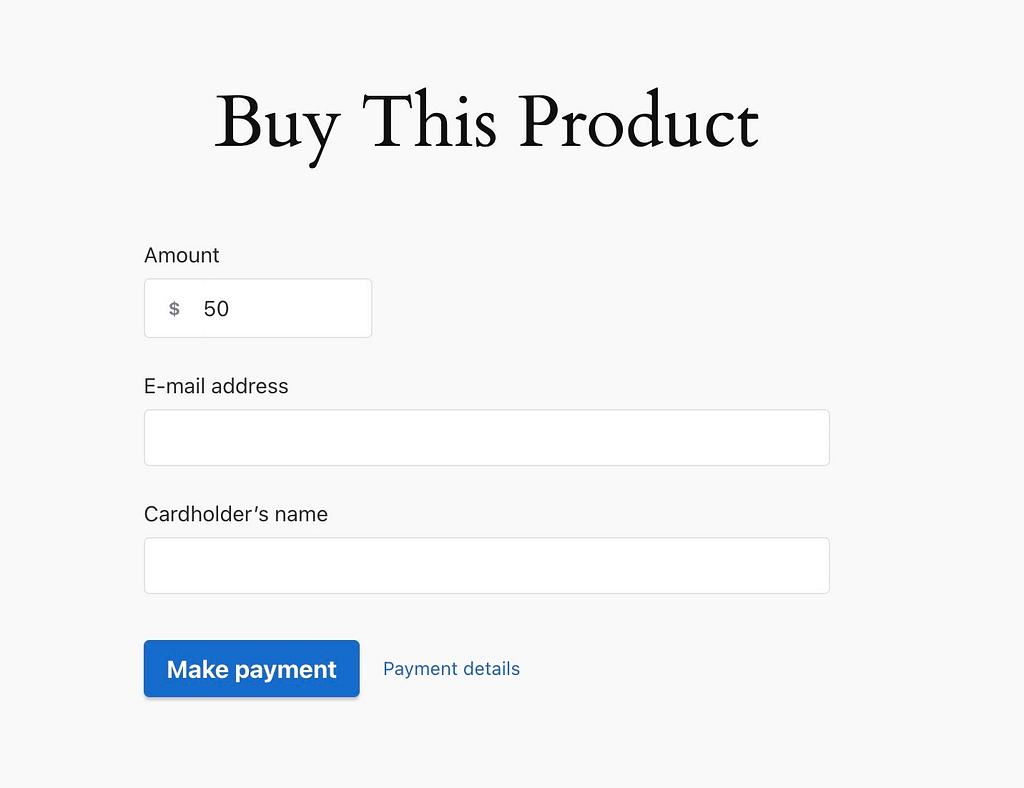

It took me about five seconds to build a form that accepts one-time payments. I was then either able to type in a minimum payment amount for processing the form or choose a pre-built product from Stripe (which required me to open Stripe and make a product).
Subscription management tools
The subscription creation and management tools from WP Full Pay are more powerful than some of the tried-and-true subscription plugins we’ve had around for a long time with WordPress. Similar to one-time payments, you need to create a subscription in Stripe. Then, WP Full Pay recognizes the subscription product for adding to the form.
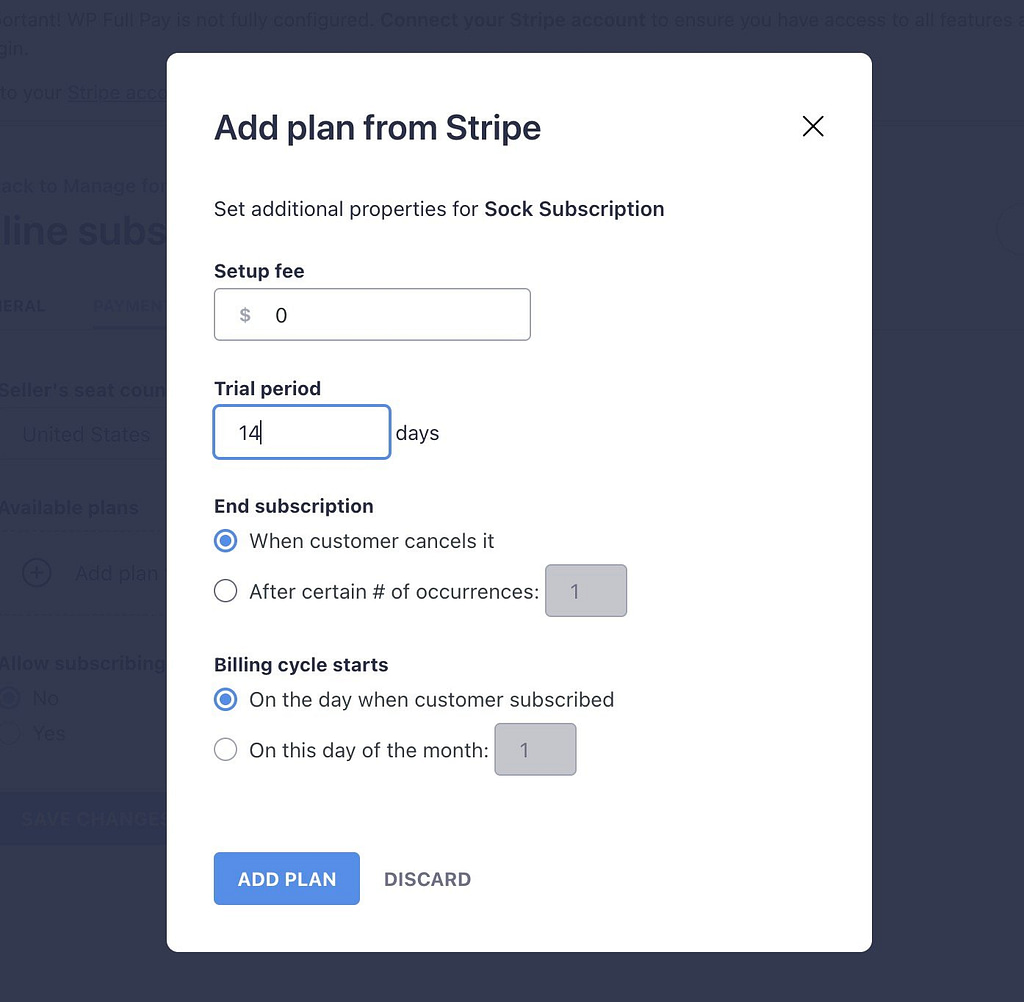

It gives the options to create a setup fee, trial period, and end subscription time. At the end of the day, you get a beautiful, modern form where someone can come to your site and sign up for a subscription within seconds.
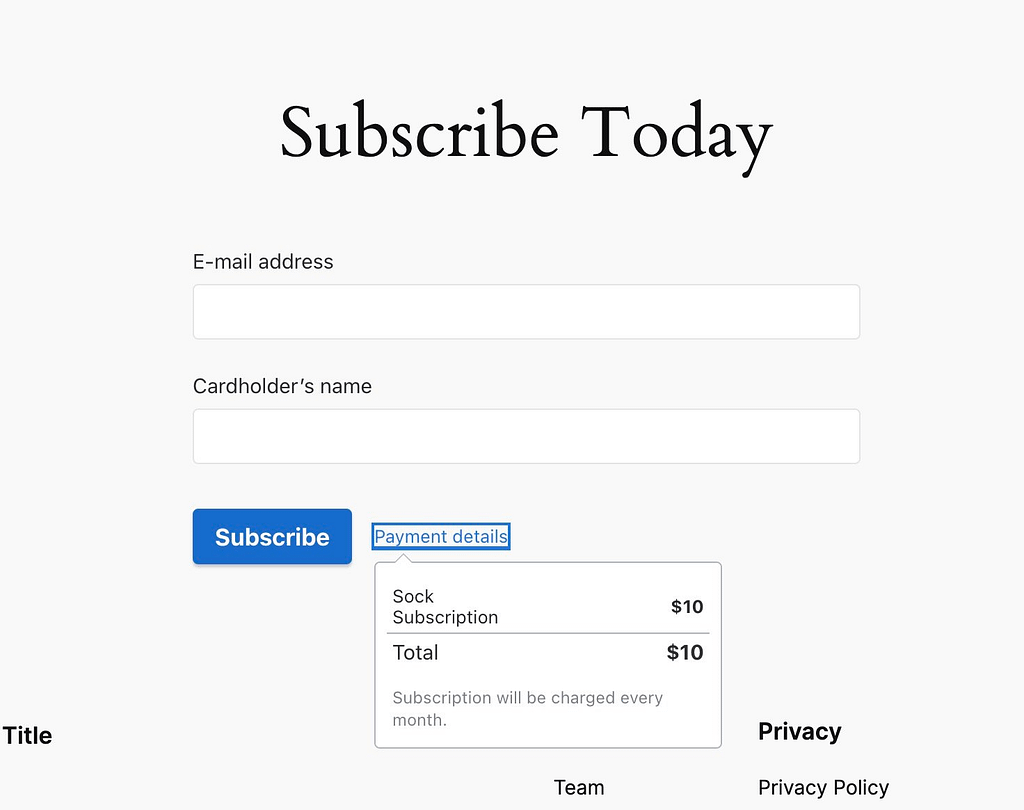

I also noticed a few other unique features, like how WP Full Pay allows users to subscribe to plans in bulk. I enjoy the plan selector style, too, which means you can either show a list of products or a product selector dropdown.
Membership content restrictions
Keep in mind that you must install the WP Full Members add-on to receive membership content restriction functionality. The add-on integrates with WP Full Pay for collecting payments and managing memberships.
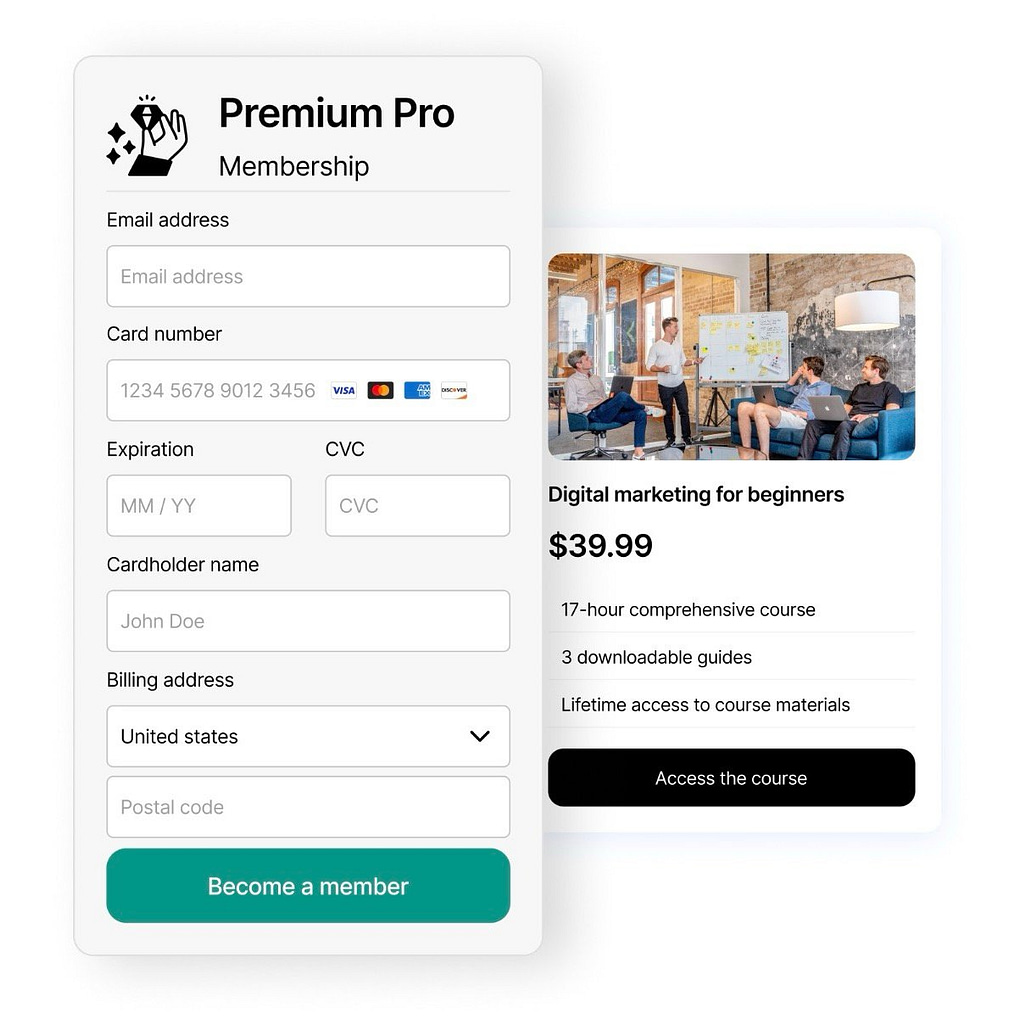

I find the feature especially appealing for those who want to hide content. You might operate a free blog but then require payment for the really good stuff. I’ve seen content creators put pay walls on resources, blog posts, and tutorials, saving the premium content for their biggest fans.
Donation form functionality
As I tried to build a donation form in WP Full Pay, I imagined so many relieved charity and church managers. Those people are tasked with collecting donations, but often lack technical skills. WP Full Pay eliminates all the technical elements.
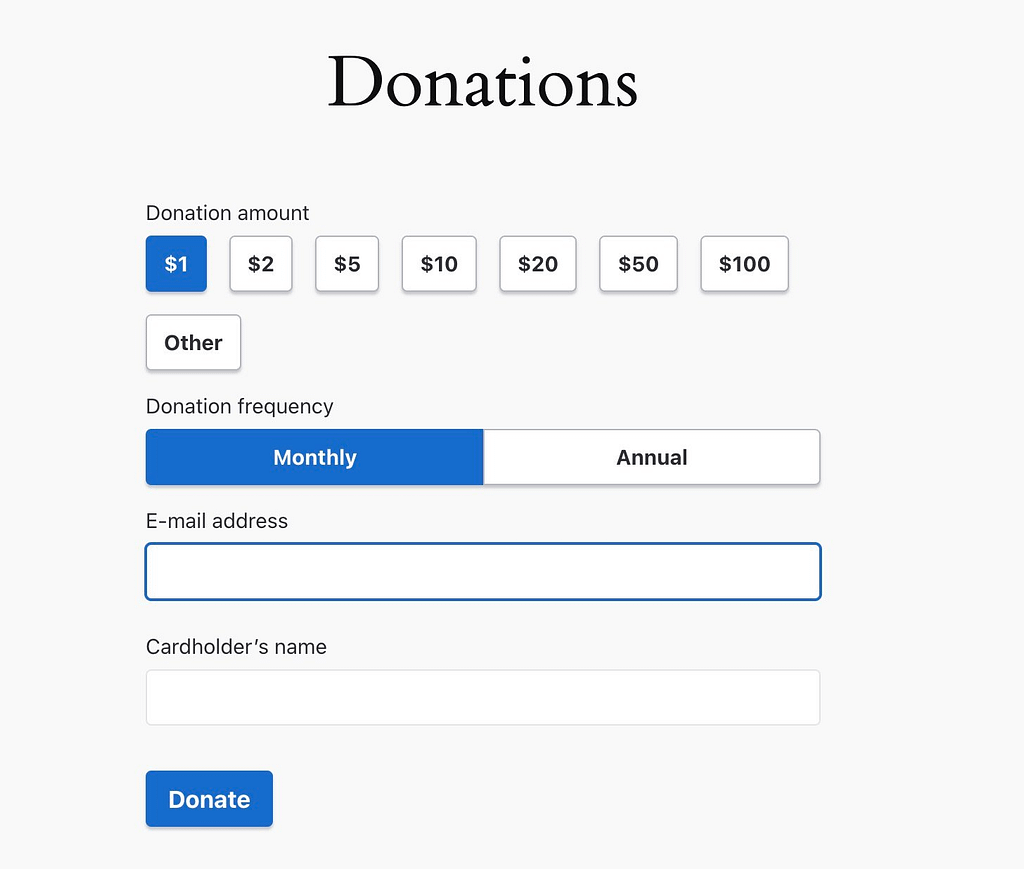

I was able to choose a quick, sleek template for my donation form, customize the suggested donation amounts, and pick things like donation frequencies and currencies.
How I liked the WP Full Pay plugin interface
The installation is really straightforward. After adding the plugin to WordPress, you’ll notice a Full Pay tab on the dashboard. The plugin will be ready to use within seconds of installing.
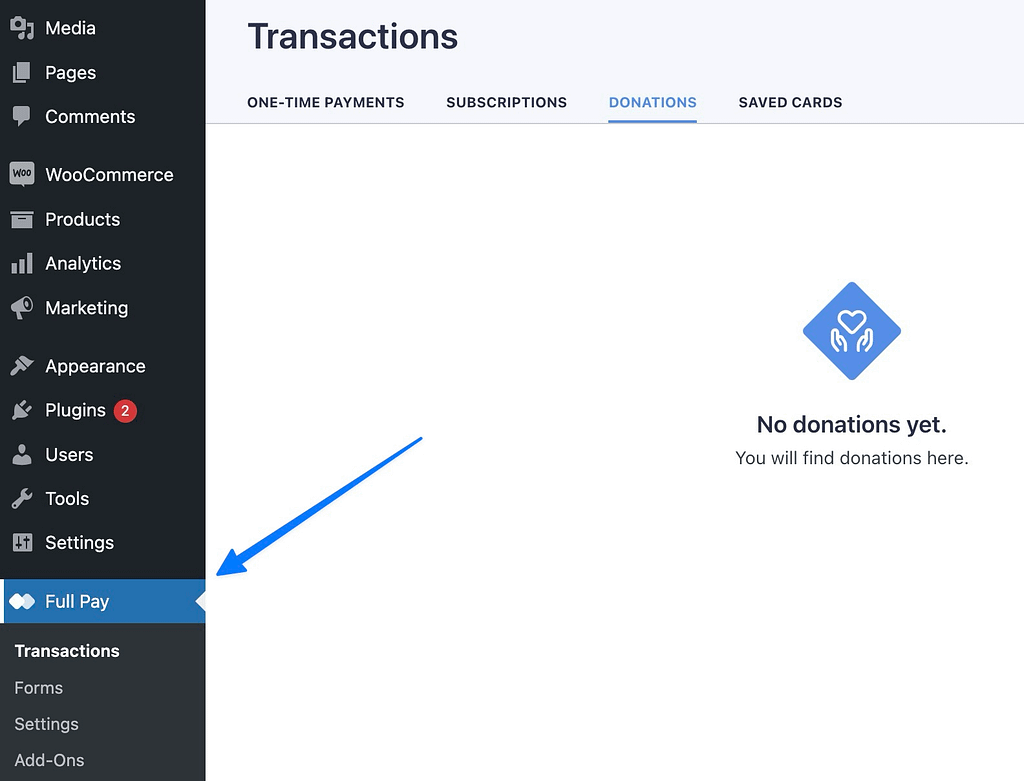

You’ll also enjoy a smooth setup and dashboard navigational process. The main menu provides options to either view past transactions or create forms. The Manage Forms area shows all forms created in the past, while also delivering quick buttons to make new ones.
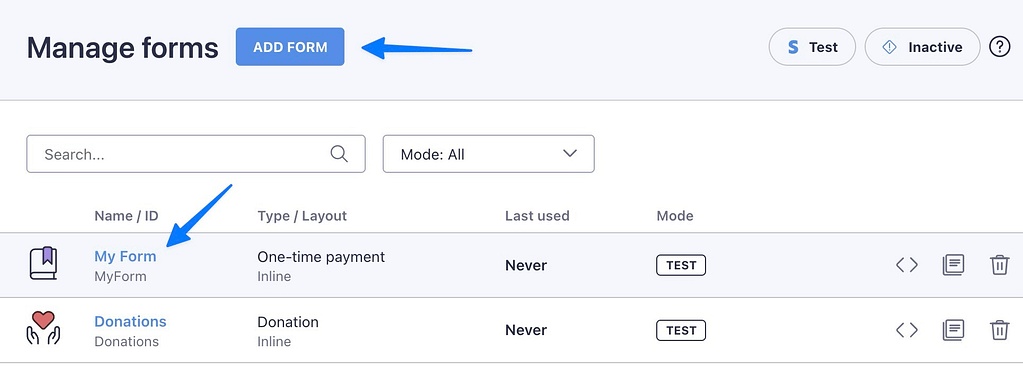

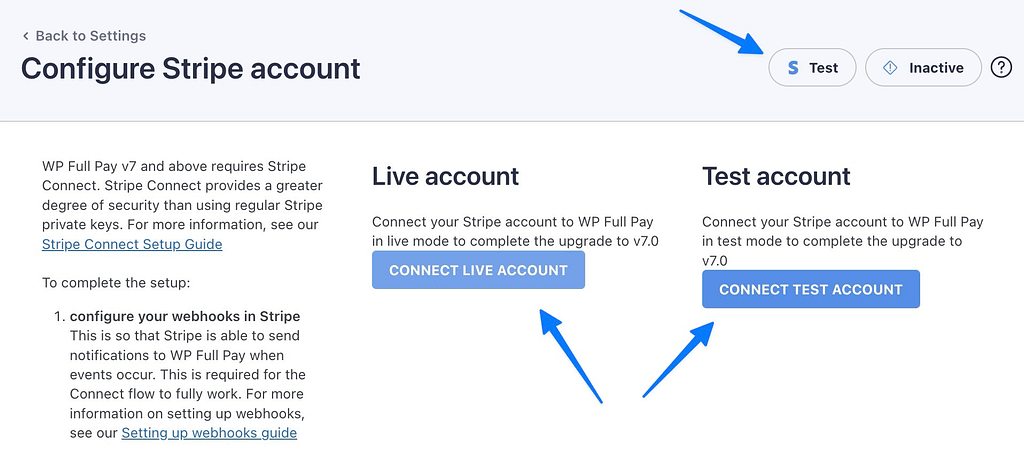

And I can’t say enough about the form creation workflow. I love some of the WordPress form plugins out there, but boy do they get complicated – or at least just so jam-packed with features and buttons I often get overwhelmed. The form creator offers fields to choose one of four form types, along with settings for the form layout.
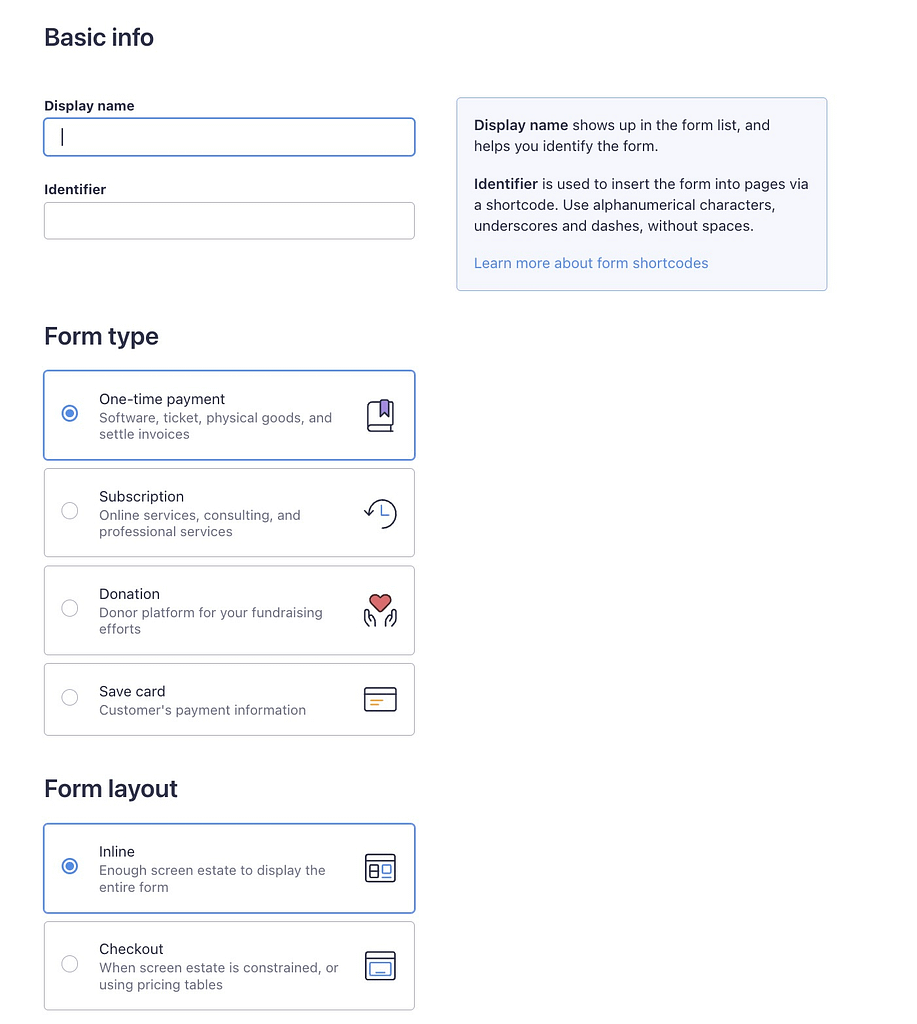

After that, it surprised me to see the power of the form builder’s settings page.
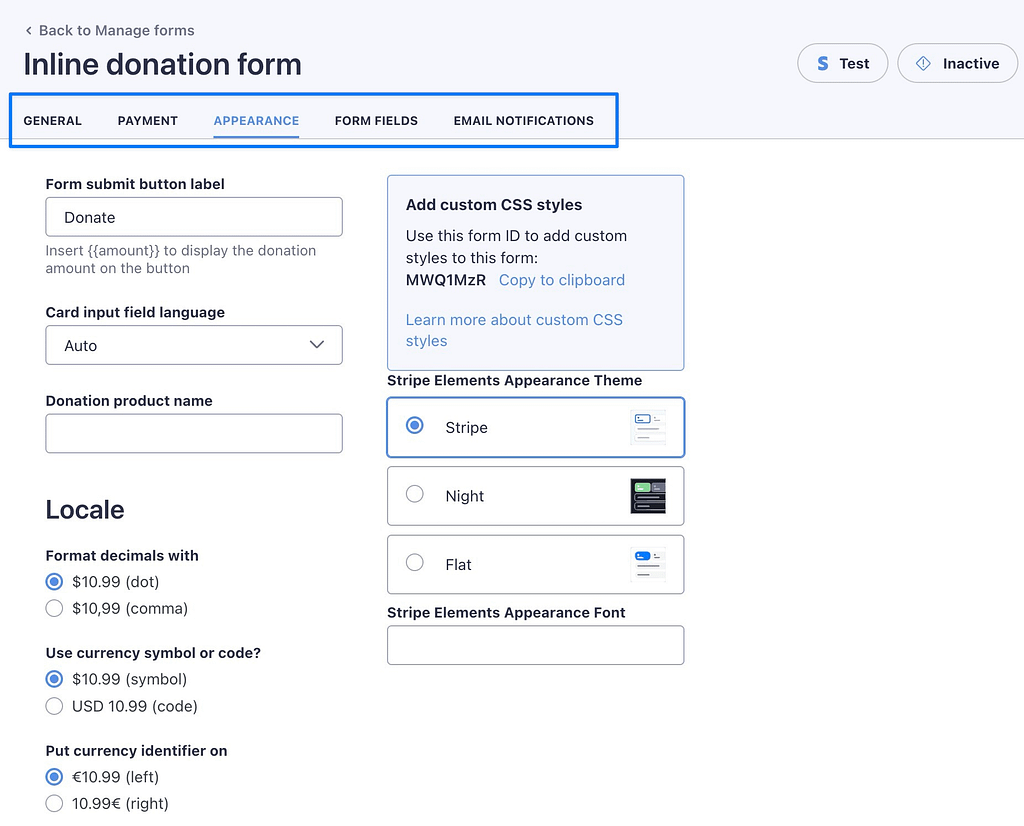

There are tabs for General settings, Payments, Appearance, Form Fields, and Email Notifications. I particularly enjoyed the Appearance tab, which offered options to change the input field language and the overall look of the Stripe form theme.
How I see the plugin used in real-world settings
I can ramble on about the features and interface of a plugin all day long, but what really matters is how you can implement it into real world situations. As a poked around into the WP Full Pay features, I realized its many real-world use cases.
- Setting up a basic payment form: This will work for anyone who needs to accept payments through a general form, including subscription-based services, e.g., fitness instructors, charities, landlords, and legal professionals.
- Managing member-only content: The support for member-only content will help a myriad of websites. That includes blogs, membership websites, forums, content creators, and influencers.
- Handling donations: Charities, foundations, churches, schools, and any organization that accepts donations could benefit from the simplicity and streamlined nature of WP Full Pay.
- Customer payment information storage: If you accept payments online, you should give people the ability to manage their accounts. Whether you sell physical products, memberships, services, or subscriptions, WP Full Pay lets your users save their card for later and change around their membership.
I can also argue that WP Full Pay works well for an even wider range of service-based industries — think accountants and consultants and contractors — considering it has features for settling invoices. It’s no QuickBooks, but sometimes the best invoicing tool is a simpler one.
WP Full Pay pricing
Here’s the deal with WP Full Pay pricing. I recommend starting with the free version to give yourself a feel for how the interface works and which features come with the plugin.
This often helps me figure out if I can fit a plugin into my organization’s workflow. After that, you can opt for premium versions when you need more features.
And I have good news. Every premium plan for WP Full Pay is very affordable. Here’s my take on each plan available:
- Free plan: It’s perfect for creating various Stripe payment forms within seconds. It’s nice for accepting donations, settling invoices, and even selling recurring services or subscriptions. You get standard Stripe payment method support, which works for many businesses.
- Starter: This plan sells for $49 per year. It’s ideal to expand your support for multiple payment methods like mobile wallets and iDEAL. You can also create a membership site and integrate with Mailchimp with this plan.
- Business: This plan costs $99 per year. Consider the Business plan if you needed to use WP Full Pay on up to three websites. It’s also a great choice if you require WordPress Multisite support.
- Professional: Sells for $189 per year. This one’s great for using on up to ten sites. That’s the main upgrade I see here.
- Agency: Costs $269 per year. Here’s the plan you need to use WP Full Pay on multiple websites. I recommend it for (surprise, surprise) agencies.
I often like to ask about the return on investment when analyzing pricing for WordPress plugins. For instance, a map plugin may be great for showing where your business is located, but if you’re mainly selling online and people don’t come to a store, you’re probably wasting money on a paid map plugin.
In this situation, however, WP Full Pay looks like an excellent investment. You have the option to test the plugin for free, then you can upgrade as your site grows. If I accept donations or sell products or memberships, I only need to make around $4 per month to break even with the Starter plan. After that, it’s all profits.
Pros and cons of WP Full Pay
There’s no perfect WordPress plugin in my opinion. Sure, I’m fond of Akismet, but I can still find faults. It’s a similar experience with WP Full Pay. Most of the time, I was pleasantly introduced to wonderful features. But I did see some areas for improvement.
Strengths
- Stripe-specific: It’s best to go with a well-optimized payment platform. Stripe is praised for its simplicity in setting up an account, connecting bank accounts, and its integration potential. It also has a transparent, affordable fee structure with high availability — so your payments always go through.
- Form flexibility: WP Full Pay offers a myriad of forms you can create. One-time payment forms, subscription-based forms, donation forms, and forms to save cards. You also have options to set an inline form or one that remained in a constrained checkout area. On top of all that, you get flexible form features for payments, taxes, appearance, and email notifications.
- Donations: I know I’ve mentioned the donation options a few times, but it’s worth repeating. That’s because it’s a rare feature you can’t find in many other WordPress payment plugins. I would usually need to download a second plugin for donations.
- Membership add-on: There’s an extra add-on called WP Full Members that allows for running a membership site and integrating directly into the WP Full Pay plugin. You can bundle WP Full Members and WP Full Pay for a better price and reap the benefits of features like membership account pages, premium content protection, and email notifications.
- Customer portal control: There’s a module in the settings area to customize what the customer portal looks like while people manage their accounts. For instance, you could make it so that a customer can view invoices, cancel their subscriptions, or upgrade/downgrade subscriptions right from the dashboard.
Here’s an example of what I mean by form flexibility. You have the option to quickly make a form with a display name, identifier, and one of four form types.
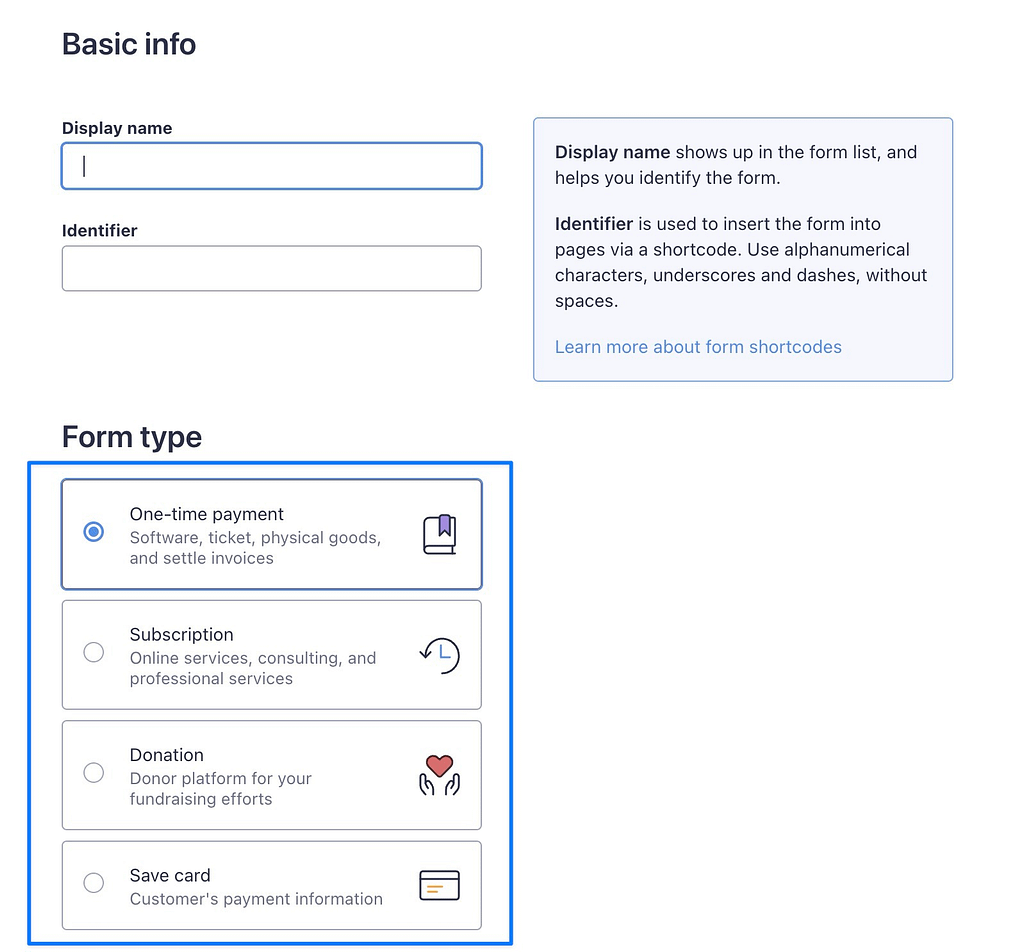

On top of that, I can test to see if the form actually works with my Stripe account and use a shortcode to add the form anywhere on my website.
Areas for improvement
- One personal challenge I encountered was having to both connect my test Stripe account but then also activate the plugin in “Test” mode before testing anything. It’s a small thing, but it caused a slowdown in my workflow.
- Although Google reCAPTCHA is nice for securing your forms, I’d also like to see other security features like anti-spam, time-based submissions, and form tokens.
- It could use stronger support for certain payment methods. I believe many are upcoming features, but I’d like to see support for ACH Direct Debit, Klarna, and Affirm.
Other than that, I’m excited to see what’s to come for the WP Full Pay plugin. It clearly has the interface most businesses need to accept donations and other payments in a matter of minutes. The extra payment methods will come. I’m just excited to see a WordPress payment plugin for everyone – one with no-code implementation and multiple form types.
Is it your go-to WordPress payment plugin?
I already outlined some of the use cases above, but I’ll give it my best shot narrowing down the absolute ideal user of the WP Full Pay plugin. I’d say the ideal user is an individual or organization that doesn’t want to mess with code but would like to accept payments for donations, subscriptions, or one-off products/services. That includes everything from accountants to fitness instructors who sell services, and membership websites, and subscription box services, and charities or churches that accept donations.
As you may have noticed, I see value in the WP Full Pay plugin for many industries and organizations. The future looks bright for the plugin, too. Not only does it have a new, reputable customer support team behind it – the same team behind Themeisle, but there’s talk about adding new payment methods and features that could make the low price even more valuable. I say give WP Full Pay a shot!
Yay! 🎉 You made it to the end of the article!

